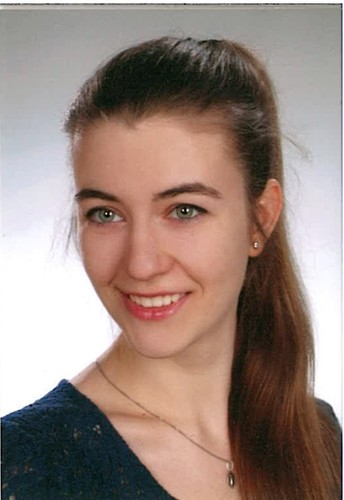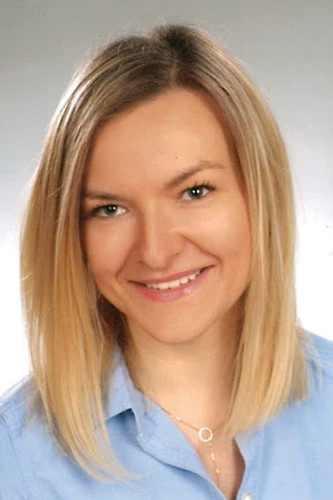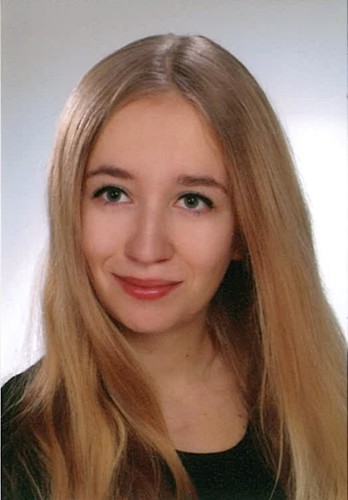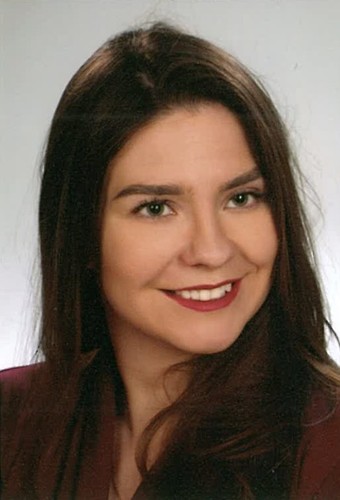The Master's Theses Contest was settled
30.03.2021
This year’s Master’s Theses Contest (concerning theses prepared in the academic year 2019/2020 in the field of pharmacy) has taken place online on March 23, 2021. It was organized by Professor Wojciech Kamysz, Dean of the Faculty of Pharmacy of the MUG, in cooperation with the PPSA Gdańsk Division. The participants and the audience were welcomed by Professor Michał Markuszewski, Vice-Rector for Science, and Dr Habil. Magdalena Prokopowicz, Deputy Dean of the Faculty of Pharmacy. A total of eight students took part in the contest.
The competition jury decided about the results of the contest and awarded the following prizes:
- Dorota Sarwińska – 1st place for the thesis Otrzymywanie i charakterystyka minitabletek sporządzanych metodą druku 3D do stosowania w pediatrii; supervisor Professor Małgorzata Sznitowska, Head of the Department of Pharmaceutical Technology.
- Monika Szczutkowska – 2nd place for the thesis Oznaczanie wielopierścieniowych węglowodorów aromatycznych w mleku kobiecym z wykorzystaniem techniki GC-MS; supervisor Professor Tomasz Bączek, Head of the Department of Pharmaceutical Chemistry.
- Laura Literska – 3rd place for the thesis Synteza pochodnych norfloksacyny zawierających czwartorzędowy atom azotu; supervisor Dr Habil. Anita Kornicka, Head of the Department of Chemical Technology of Drugs.
- Kinga Seroczyńska – audience award for the thesis Porównanie zawartości pierwiastków śladowych w kawie typu espresso z Polski i Portugalii – akcent na bezpieczeństwo i wartość odżywczą; supervisor Dr Habil. Paweł Konieczyński from the Department of Analytical Chemistry.
- I prepared my master’s thesis as part of the Erasmus+ program at the University of Greifswald in Germany. Its aim was to test whether the FDM 3D printing method is suitable for the production of mini-tablets – explains Dorota Sarwińska. – They are a preferred form of the drug for use in pediatrics, i.e. due to their small size and the possibility of adjusting the dose to a specific child. The hot extrusion method combined with 3D printing is a new way to obtain mini-tablets. Work on this topic was fascinating and developing for me, so I am glad that I could present my master’s thesis at this year’s Master’s Theses Contest, which was a great challenge and a great experience. Talking about your work and presenting the results of your research is an opportunity to test yourself and a good way to get used to public speaking.
- The subject of my thesis is the determination of polycyclic aromatic hydrocarbons in human milk using the GC-MS technique – says Monika Szczutkowska. – So far, concentrations of PAHs in human milk have not been monitored in Poland, and the current air pollution prompts us to determine the presence of carcinogenic compounds in biological samples. In the sample preparation procedure for analysis, I used sorbents produced with the use of 3D printing technology. 3D printing is becoming more and more popular and finds many applications in analytical chemistry due to its low cost, the possibility of using any shape and low consumption of organic solvents in the extraction procedure. Sorbents produced by means of 3D printing have proved to be a perfect solution for the determination of PAHs in human milk.
- The choice of the subject of the master’s thesis was extremely simple – firstly because of my passion for chemistry, and secondly because of the seriousness of the problem of antibiotic resistance and the risks it carries – says Laura Literska. – I recommend participation in the Master’s Theses Contest especially to people interested in a scientific career. It is a great opportunity to practice presenting the results of your (often lasting many months) work to a wider audience.
- The idea for research for the thesis was born out of love for coffee – emphasizes Kinga Seroczyńska. – I have always wanted to participate in a project that aims to benefit a wider audience, so when I got a proposal to test the content of trace elements in coffee – I did not hesitate for long, especially when the research would take place in Porto – one of the most beautiful cities in Europe. I believe that the topic of my work was close not only to pharmacy and its interests, but most of all to everyone. This is what seems to be the greatest asset of my work.
The commission evaluating the works was composed of: its chairman, Dr Habil. Magdalena Prokopowicz and Dr Habil. Danuta Siluk, Assoc. Prof., Deputy Deans of the Faculty of Pharmacy, Dr Habil. Ilona Olędzka and Dr Habil. Piotr Kowalski, Assoc. Prof. from the Department of Pharmaceutical Chemistry, Dr Habil. Jarosław Sączewski from the Department of Organic Chemistry, and representatives of students – Stella Grodzicka, a representative of the University Student Government and Klaudia Jagielska, a representative of the PPSA Gdańsk Division, a 5th year pharmacy students.
Archives
- Academic Year 2024/2025
- Academic Year 2023/2024
- Academic Year 2022/2023
- Academic Year 2021/2022
- Academic Year 2020/2021
- Academic Year 2019/2020
- Academic Year 2018/2019
- Academic Year 2017/2018
- Academic Year 2016/2017
- Academic Year 2015/2016
- Academic Year 2014/2015
- Academic Year 2013/2014
- Academic Year 2012/2013



